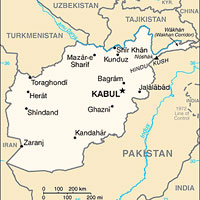Interfax: NATO demonstrates touching care for “Afghan peasants” growing drug crops – FSKN chief

MINSK. Nov 28 (Interfax) – Federal Drug Control Service (FSKN) Director Viktor Ivanov says that NATO has failed to contribute to the fight against Afghan illegal drug business.
“We can say that the hopes the world pinned on NATO in the suppression of Afghan drugs were crushed,” Ivanov said at a meeting of the Collective Security Treaty Organization (CSTO) Coordination Council of Leaders of Drug Control Agencies in Minsk on Thursday.
“And this is not surprising because the NATO strategic concept does not mention the fight against drugs in Afghanistan,” Ivanov said.
“Moreover, NATO explains a deficit of its willingness to fight this evil with the touching care for Afghan peasants,” the Russian chief drug enforcer said.
“It is not surprising that NATO has detached itself from the deterrence of drug production in Afghanistan as much as it could instead of developing strategic cooperation,” Ivanov continued.
“Nine U.S. military bases deployed in Afghanistan, and their legitimatization in the direct proximity to CSTO member countries is obviously the hidden meaning and the essence of the strategy NATO has been implementing for the past 13 years,” he said.
“The CSTO needs to take a new anti-drug position in the context of NATO’s keeping aloof,” Ivanov said. “It would be expedient to offer our NATO partners once again to consider the Russian plan Raduga-2 with a focus on two major issues – the status of drug production in Afghanistan as a threat to world peace and security and the alternative development of Afghanistan,” the service director said.
“It is necessary to rethink the role of the CSTO as the main and, actually, only guarantor of anti-drug security in Eurasia,” Ivanov said. “The simultaneous holding of our CSTO conference in Minsk and the EU Eastern Partnership summit in Vilnius, which is considering further eastward enlargement of the European Union, looks rather symbolic in this light,” he said.
“Alas, the area, which has the most significant public meaning, the drug control area, is somewhat forgotten in the course of this reckless eastward movement of the EU. And this is the most apparent from the specific policy on Afghanistan,” he said.
The Minsk meeting will consider “a CSTO drug control strategy, the establishment of a center to train drug control officers and the opening of a CSTO center of anti-drug operations,” Ivanov concluded.
